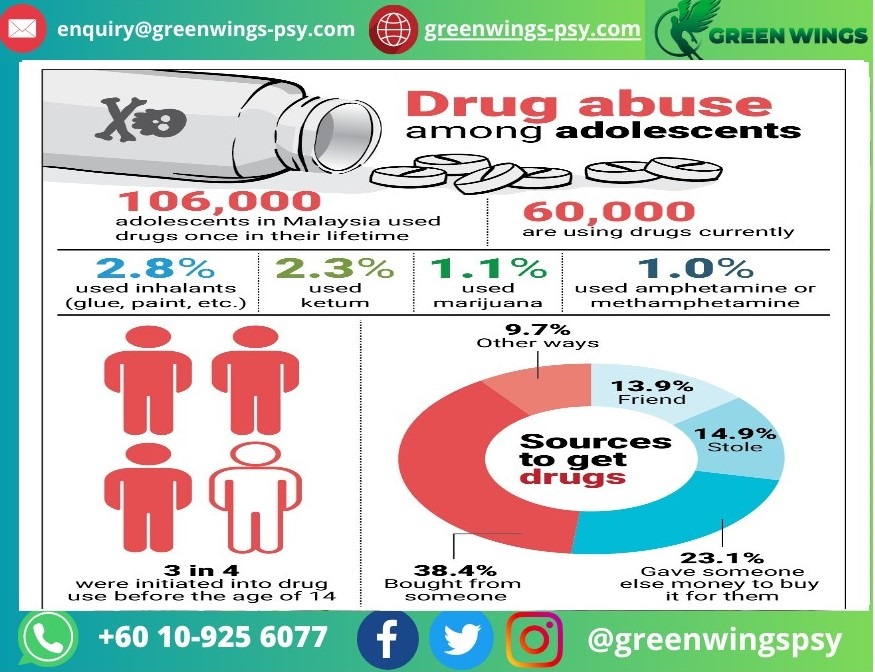Drug addiction is a pervasive and challenging issue that affects millions of individuals worldwide. It not only impacts the physical health of those struggling with substance abuse but also takes a toll on their mental and emotional well-being. Recognizing the complex nature of drug addiction, effective treatment requires a comprehensive approach that addresses the root causes, provides support, and promotes long-term recovery.
Understanding Drug Addiction:
Before delving into treatment methods, it’s crucial to understand the nature of drug addiction. Addiction is a chronic disease characterized by compulsive drug-seeking, continued use despite harmful consequences, and long-lasting changes in the brain. It often stems from a combination of genetic, environmental, and psychological factors, making each individual’s journey unique.
Key Principles of Drug Addiction Treatment:
Individualized Assessment:
Every person struggling with drug addiction has a distinct set of circumstances and needs. Therefore, a successful treatment plan begins with a thorough assessment of the individual’s physical health, mental health, and social environment.
Comprehensive Detoxification:
The first step in drug addiction treatment is often detoxification, where the body eliminates the substance. Medically supervised detox helps manage withdrawal symptoms, ensuring a safer transition to sobriety.
Behavioral Therapy:
Behavioral therapy plays a central role in addiction treatment. It helps individuals identify and change destructive patterns of behavior, promoting healthier coping mechanisms and reducing the risk of relapse. Cognitive-behavioral therapy (CBT), contingency management, and motivational enhancement therapy are commonly used approaches.
Medication-Assisted Treatment (MAT):
MAT involves the use of medications to support recovery by reducing cravings and minimizing withdrawal symptoms. Medications like methadone, buprenorphine, and naltrexone are often prescribed, especially in cases of opioid addiction.
Holistic Approaches:
Treating drug addiction requires addressing not only the physical aspects but also the emotional and spiritual dimensions. Holistic approaches such as yoga, meditation, acupuncture, and art therapy are increasingly integrated into treatment programs to foster overall well-being.
Family Involvement:
Involving the family in the treatment process is crucial. Family support can be a powerful motivator for individuals undergoing recovery, and family therapy sessions can help improve communication and mend strained relationships.
Support Groups:
Peer support is invaluable in the journey to recovery. Support groups like Narcotics Anonymous (NA) and Alcoholics Anonymous (AA) provide a sense of community, shared experiences, and encouragement, helping individuals stay committed to their recovery.
Continuing Care and Aftercare:
Successful treatment doesn’t end with detox and therapy. A robust continuing care plan and aftercare support are essential for maintaining long-term recovery. This may include ongoing therapy, support group participation, and lifestyle changes that support a drug-free life.
Challenges in Drug Addiction Treatment:
Stigma:
The stigma associated with drug addiction can deter individuals from seeking treatment. Education and awareness campaigns are crucial to combatting stigma and promoting understanding that addiction is a medical condition, not a moral failing.
Access to Treatment:
Disparities in access to quality addiction treatment services pose a significant challenge. Efforts to improve accessibility, affordability, and the integration of addiction treatment into mainstream healthcare are essential.
Co-occurring Disorders:
Many individuals struggling with drug addiction also face co-occurring mental health disorders. Integrated treatment that addresses both substance use and mental health issues is vital for comprehensive care.
Conclusion: Effectively treating drug addiction requires a multifaceted approach that recognizes the individuality of each case. By combining medical interventions, behavioral therapy, family support, and ongoing care, we can address the complex nature of addiction and promote sustained recovery. We at Greenwings-Psy are equipped one of the best team of addiction specialists, Psychologists and all the facilities at a most affordable rate. We have a success story of treating all major addiction and mental health relates issues for more than a decade. To know more about our treatment programs do reach us via WhatsApp/Call at +60 10-925 6077or visit our website https://greenwings-psy.com/

